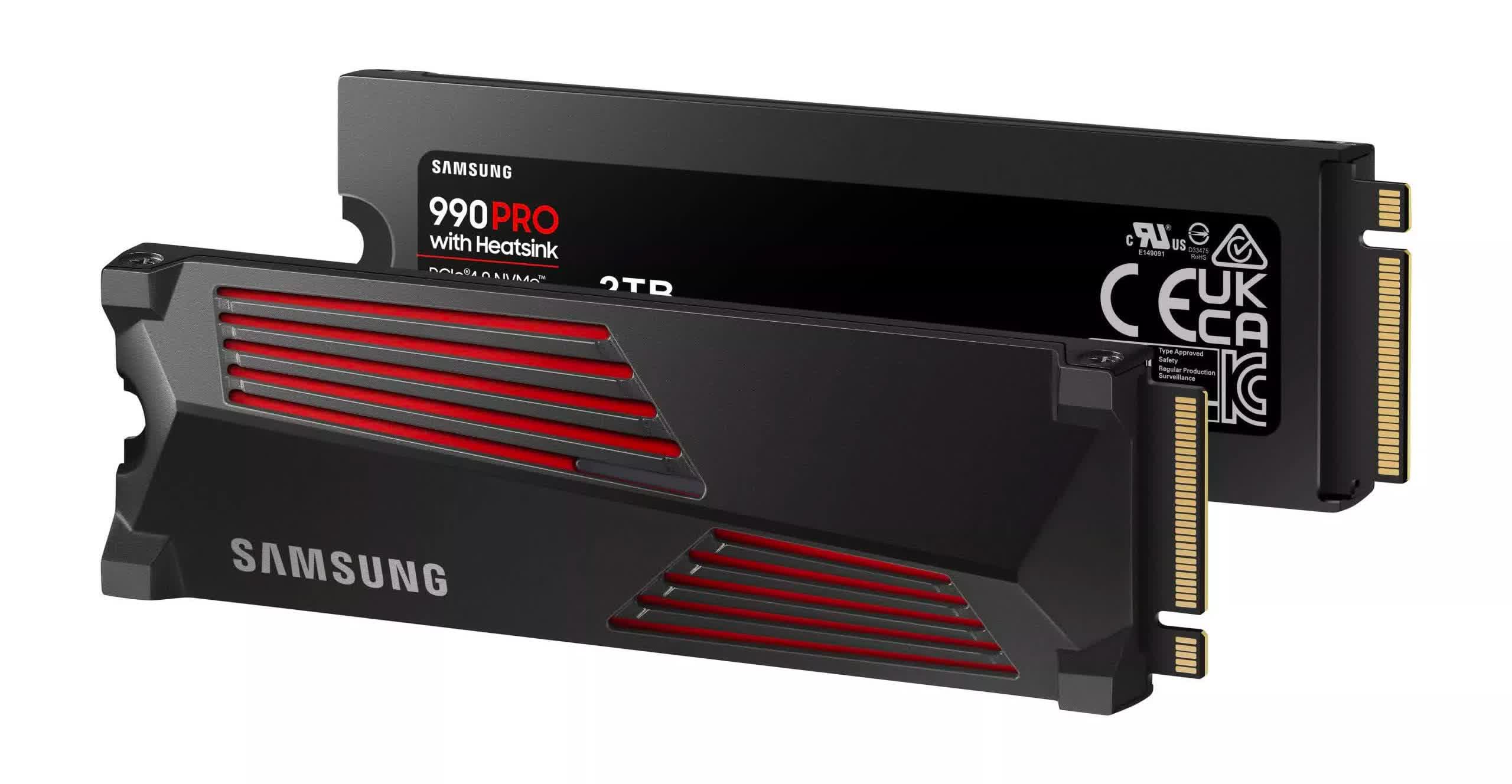Something to look forward to: PCIe 5.0 SSDs are just around the corner, along with new CPUs and motherboards to support their bleeding-edge speeds. However, Samsung's new high-performance PCIe 4.0 SSD will probably provide all the speed many users need for a while.
Samsung unveiled today the 990 Pro PCIe 4.0 NVMe SSD, positioning the new drive for gaming, 3D rendering, data analysis, and 4K video editing. The 990 Pro advertises sequential read speeds of up to 7.450 MB/s and write speeds of up to 6,900 MB/s, pushing beyond the 980 Pro's already impressive 7,000/5,000 MB/s read/write speeds.
The 990 Pro should also improve upon the 980's random read/write performance by 55 percent, hitting 1,400/1,550K IOPS. Samsung plans to launch the new SSD this October at an MSRP similar to the 980 Pro's – $179 for the 1TB model and $309 for 2TB with heatsink included. A 4TB variant will launch in 2023.
The performance spec listed by Samsung is likely aspirational. TechSpot's tests showed the 980 Pro attaining a read speed of 6,300 MB/s compared to its 7,000 MB/s on-the-box rating. Whatever the 990 Pro's real-world speeds are, Samsung says it will cut gaming load times. If that happens, the performance difference will likely appear in games launching in 2023 and later.

According to tests, recent high-end PC games provide the same experience on SATA and NVMe SSDs. Even PlayStation 5 games are currently passable with a 3,200 MB/s SSD. However, things might change when Microsoft's DirectStorage API debuts on Windows next year with the release of Luminous Productions' Forspoken.
Samsung uses Forspoken as an example, saying the 990 Pro loaded one of the game's maps in roughly one second. Luminous technical director Teppei Ono said SSDs with read speeds over 5,000 MB/s should load some of Forspoken's scenes as fast. However, demonstrations at GDC 2022 showed NVMe load times of just under two seconds compared to nearly four seconds on a SATA SSD and 21 seconds on an HDD.
Those planning to buy or build new PCs later this year are probably waiting on PCIe 5.0 SSDs, which Intel's latest Alder Lake processors and AMD's upcoming Zen 4 CPUs support. This fall's SSDs from companies like Corsair and Apacer promise speeds over 10,000 MB/s.
However, high-performance PCIe 4.0 SSDs like Samsung's 980 or 990 Pro are probably worthwhile for users intending to hold onto PCIe 4.0 systems for the next few years, including the PlayStation 5. The 990 Pro's announcement doesn't mention the PS5, but Samsung pushed the 980 Pro as an ideal PS5 storage option, so it wouldn't be surprising if the company did the same with its latest offering.
https://www.techspot.com/news/95755-samsung-990-pro-pcie-40-ssd-boasts-up.html
